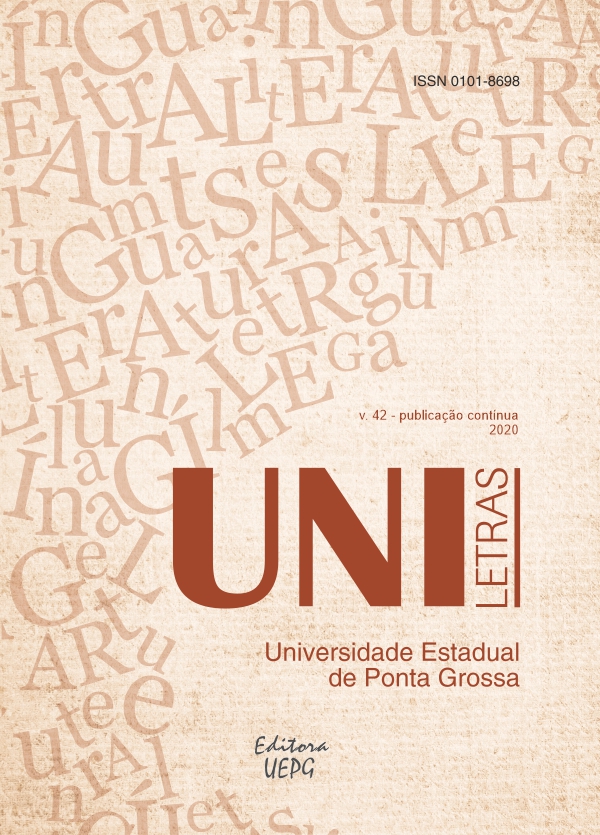REFLEXOS DA POESIA DE HORÁCIO NO LIVRO III DA ENEIDA, DE VIRGÍLIO
Resumo
O objetivo deste estudo é realizar uma análise linguístico-literária e comparativa entre o livro III da Eneida, de Virgílio, e a sátira 2.8, de Horácio, buscando identificar os recursos utilizados na epopeia que retomam os elementos presentes na referida sátira. Pretendemos entender como o cenário catastrófico do banquete de Nasidieno, anfitrião hostil, de comportamentos viciosos, que figura na sátira 2.8, é reapresentado no livro III da Eneida, em que Eneias é continuamente interrompido por Celeno, impedindo, assim, as tentativas do herói de realizar um jantar sagrado no local para fundar a Nova Troia. Para tanto, trabalharemos com nossa tradução instrumental dos trechos que se fizerem pertinentes para a análise, e nos serviremos do aporte teórico de Carratore (1962), D’Onofrio (1968), Oliveira (2014), e outros, que nos auxiliarão a perceber características próprias de cada um dos textos que analisaremos, além da intertextualidade que os vincula.
Downloads
Downloads
Publicado
Edição
Seção
Licença
Autores que publicam nesta revista concordam com os seguintes termos:
a) Os autores mantém os direitos autorais e concedem à revista o direito de primeira publicação, com o trabalho simultaneamente licenciado sob a Creative Commons Attribution License que permite o compartilhamento do trabalho com reconhecimento da sua autoria e publicação inicial nesta revista.
b) Esta revista oferece acesso livre imediato ao seu conteúdo, seguindo o princípio de que disponibilizar gratuitamente o conhecimento científico ao público proporciona maior democratização mundial do conhecimento. Para maiores informações sobre esta abordagem, visite Public Knowledge Project, projeto que desenvolveu este sistema para melhorar a qualidade acadêmica e pública da pesquisa, distribuindo o OJS assim como outros softwares de apoio ao sistema de publicação de acesso público a fontes acadêmicas. Os nomes e endereços de e-mail neste site serão usados exclusivamente para os propósitos da revista, não estando disponíveis para outros fins.

This work is licensed under a Creative Commons Attribution 4.0 International License.





